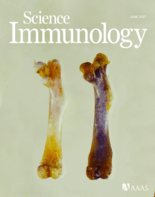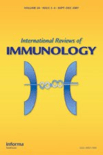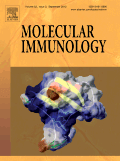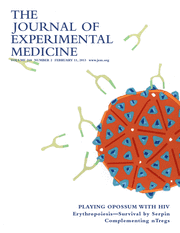
Immune Network
Scope & Guideline
Leading the Charge in Immunological Discoveries
Introduction
Aims and Scopes
- Innate and Adaptive Immunity:
The journal extensively covers research related to both innate and adaptive immune mechanisms, including the roles of various immune cells such as T cells, B cells, macrophages, and natural killer cells in health and disease. - Immunotherapy and Vaccine Development:
A significant focus is placed on the development and optimization of immunotherapies and vaccines, addressing how immune responses can be harnessed or modulated to treat diseases such as cancer and infectious diseases. - Autoimmunity and Inflammation:
Research examining the mechanisms of autoimmune diseases and chronic inflammation is a core area, with studies exploring the roles of cytokines, immune cell interactions, and signaling pathways. - Host-Pathogen Interactions:
The journal includes studies on host-pathogen interactions, particularly regarding how pathogens evade immune responses, as well as the immune system's mechanisms to combat infections. - Translational Research and Clinical Applications:
There is a consistent emphasis on translating basic immunological research into clinical applications, including the study of immune responses in various patient populations and the evaluation of new therapeutic strategies.
Trending and Emerging
- Microbiome and Immune Interactions:
Research exploring the relationship between the microbiome and immune responses is gaining traction, emphasizing how gut microbiota can influence systemic immunity and disease outcomes. - Cellular Metabolism in Immunity:
There is a rising interest in the role of cellular metabolism in shaping immune cell function, particularly how metabolic pathways affect T cell differentiation and macrophage polarization. - Long-COVID and Immune Dysregulation:
Emerging studies are increasingly focused on the immunological aspects of long-COVID, investigating how SARS-CoV-2 infection can lead to persistent immune dysregulation. - Novel Immunotherapeutic Approaches:
The exploration of novel immunotherapeutic strategies, including bispecific antibodies and cell therapies, is becoming a prominent focus, reflecting a shift towards more personalized medicine in immunotherapy. - Innate Immunity in Cancer Therapy:
There is a growing body of research investigating the roles of innate immune components, such as natural killer cells and macrophages, in the context of cancer therapy, indicating a trend towards harnessing innate immunity.
Declining or Waning
- Traditional Vaccine Platforms:
Research focused on traditional vaccine platforms, such as inactivated or live-attenuated vaccines, appears to be declining as newer mRNA and viral vector technologies gain prominence. - Basic Mechanisms of T Cell Activation:
While still important, the basic mechanisms of T cell activation have received less attention compared to more complex and context-dependent studies of T cell functions in disease settings. - Cytokine Research in Isolation:
Studies examining the roles of individual cytokines in isolation are waning, as there is a shift towards understanding the broader networks of cytokine interactions and their implications in immune responses. - Animal Models of Disease:
There has been a gradual decrease in publications focused solely on animal models of diseases, with a growing preference for studies that incorporate human data or translational approaches.
Similar Journals

JOURNAL OF IMMUNOLOGY
Championing Cutting-edge Immunological StudiesWelcome to the JOURNAL OF IMMUNOLOGY, a prestigious publication associated with the American Association of Immunologists and dedicated to advancing the field of immunology. With a rich history dating back to 1945, this journal is renowned for its high-impact research, evident in its notable 2023 Q1 rankings in both Immunology and Allergy, as well as its strong positions in Scopus rankings—Rank #68 in Immunology and Allergy and Rank #79 in Immunology and Microbiology. Although it operates on a subscription basis, its commitment to publishing cutting-edge studies ensures that it remains a vital resource for scientists, healthcare professionals, and students alike. As the journal continues to pave the way for innovative research and breakthroughs in immunological science, it facilitates a platform for dialogue and discovery among researchers and practitioners across the globe.

Immunological Medicine
Empowering Innovation in Immunological MedicineImmunological Medicine, published by Taylor & Francis Ltd, is an esteemed open-access journal that has made significant strides in the field of immunology since its establishment in 2018. With an E-ISSN of 2578-5826, the journal has quickly gained recognition for its contribution to advancing immunological research, evidenced by its impressive ranking in the Q2 quartile for both immunology and allergy. Positioned in the United Kingdom, it offers a platform for publishing high-quality original research, reviews, and case studies that delve into the complex interactions of the immune system and its implications for human health. The journal serves as a vital resource for researchers, professionals, and students engaged in the burgeoning fields of immunology, providing open access to a wide audience and fostering collaboration and innovation. With a current Scopus ranking of #81 out of 233 in Immunology and Allergy and #97 out of 236 in Immunology and Microbiology, the journal aims to enhance the visibility and impact of cutting-edge research by bridging the gap between academia and clinical practice.

Science Immunology
Connecting Science and Solutions in ImmunologyScience Immunology, published by the American Association for the Advancement of Science, is a leading journal in the field of immunology, recognized for its significant impact and rigor in advancing our understanding of immune responses and complex diseases. With an impressive impact factor that places it in the Q1 category of both immunology and allergy, as well as miscellaneous medicine, this journal is ranked #7 and #8 in their respective Scopus categories, reflecting its high-quality research output. Since its inception in 2016, Science Immunology has been at the forefront of interdisciplinary immunological research, fostering crucial insights that link immunology with pressing health challenges. The journal is committed to providing open access to its content, ensuring that groundbreaking findings are accessible to a global audience of researchers, professionals, and students. Its anthology not only addresses fundamental immunological mechanisms but also enhances the dialogue on translational applications and therapeutic interventions, solidifying its position as an essential resource within the scientific community.

INTERNATIONAL REVIEWS OF IMMUNOLOGY
Fostering Breakthroughs in Immunological UnderstandingINTERNATIONAL REVIEWS OF IMMUNOLOGY, published by Taylor & Francis Inc, is a leading academic journal that has been a cornerstone of immunological research since its inception in 1986. With an impressive impact factor and ranked in the top quartiles of its field (Q2 in both Immunology and Allergy), this journal offers a critical platform for the dissemination of influential findings and advancements within immunology. Spanning a diverse array of topics, from basic immune mechanisms to clinical applications, it aims to support the global scientific community in enhancing immunological understanding and therapeutic interventions. Researchers and professionals alike benefit from insights provided by renowned contributors, ensuring that the journal remains relevant in a rapidly evolving field. Directly accessible through subscription or institutional access, INTERNATIONAL REVIEWS OF IMMUNOLOGY is committed to fostering collaboration and innovation, making it an essential resource for anyone involved in immunological research and practice.

MOLECULAR IMMUNOLOGY
Pioneering Insights into Molecular ImmunologyMOLECULAR IMMUNOLOGY, published by Pergamon-Elsevier Science Ltd in the United Kingdom, is a highly regarded journal in the fields of Immunology and Molecular Biology. With a focus on advancing the understanding of the immune system at the molecular level, the journal has been a critical resource since its inception in 1975. The journal is currently listed in the second quartile (Q2) of its category as per the 2023 rankings, indicating its substantial impact in both Immunology and Molecular Biology research. Researchers and professionals benefit from the journal's rigorous peer-review process and its commitment to publishing high-quality original research, reviews, and methodological studies that explore the intricate dynamics of immune responses. Although it does not currently offer an open access option, MOLECULAR IMMUNOLOGY remains an essential platform for scholars, emphasizing the significance of molecular interactions within the immune system and their implications in health and disease.

JOURNAL OF EXPERIMENTAL MEDICINE
Innovating Solutions for Tomorrow's Health ChallengesJOURNAL OF EXPERIMENTAL MEDICINE, published by Rockefeller University Press, is a renowned peer-reviewed journal dedicated to advancing the field of experimental medicine since its inception in 1896. With an impressive impact factor and categorized in the Q1 quartile for Immunology, Immunology and Allergy, and Miscellaneous Medicine, this journal stands at the forefront of medical research and innovation. It provides a prestigious platform for scholars and practitioners to disseminate groundbreaking findings that drive the understanding of disease mechanisms and therapeutic strategies. While the journal is not open access, it maintains high visibility and engagement within the scientific community, fostering collaboration among researchers, professionals, and students alike. The journal's consistent ranking in the top percentiles of Scopus illustrates its significant impact and commitment to excellence in medical research.

TRENDS IN IMMUNOLOGY
Elevating Immunological Knowledge for Global ImpactTRENDS IN IMMUNOLOGY, published by CELL PRESS, stands as a premier source of insights and developments within the field of immunology. With an ISSN of 1471-4906 and E-ISSN of 1471-4981, this journal has established a strong reputation, evidenced by its prestigious status in Q1 quartiles for both Immunology and Allergy in 2023. It is ranked #13 out of 233 in the Scopus category of Medicine – Immunology and Allergy, and #16 out of 236 in Immunology and Microbiology, placing it within the top 94th and 93rd percentiles respectively. Since its inception in 1987, TRENDS IN IMMUNOLOGY has provided a critical platform for researchers, professionals, and students to access the latest advancements and integrative reviews in immunological research. The journal offers open access options, enhancing the accessibility of its high-impact content to a global audience. Researchers and practitioners rely on its pages not only for cutting-edge findings but also for comprehensive discussions that drive the future of immunology research.

Immunity Inflammation and Disease
Elevating the discourse on therapeutic strategies for inflammatory diseases.Immunity, Inflammation and Disease is a premier open-access journal published by WILEY, dedicated to advancing the field of immunology and allergy. Launched in 2013, this journal has established itself as a significant platform for researchers and professionals to disseminate high-quality research findings and innovative insights that address critical issues in immune responses and inflammatory diseases. With an impact factor that reflects its growing influence and a current ranking in Q3 for Immunology and Q2 for Immunology and Allergy, this journal serves a diverse audience keen on exploring cutting-edge developments. Researchers are encouraged to submit their work to share their findings with a global reach, foster collaboration, and enhance the understanding of immune mechanisms and therapeutic strategies. Accessible since its inception, Immunity, Inflammation and Disease is committed to open science, ensuring that vital research is freely available for the advancement of knowledge within the academic community and beyond.

IMMUNOLOGY
Unveiling the Complexities of the Immune SystemIMMUNOLOGY is a premier journal published by Wiley that has been at the forefront of the field since its inception in 1958. With an impressive impact factor and classified in the Q1 quartile for both Immunology and Allergy as of 2023, this journal is highly regarded among researchers and professionals alike. It ranks 36th out of 233 in the Medicine/Immunology and Allergy category, and 40th out of 236 in the Immunology and Microbiology segment on Scopus, placing it firmly within the top percentile of its field. The journal is dedicated to publishing high-quality research that advances our understanding of immunological processes, bridging basic science with clinical applications. Although it does not operate under an open-access model, it offers conventional access options that remain integral to the dissemination of vital immunological research. With its broad scope and commitment to scholarly excellence, IMMUNOLOGY continues to serve as an essential resource for those seeking the latest advancements in immunology, fostering innovation and collaboration among scientists globally.

Immunotherapy Advances
Fostering collaboration and discovery in the world of immunology.Immunotherapy Advances, published by Oxford University Press, stands at the forefront of the rapidly evolving field of immunology and microbe interactions, focusing specifically on novel immunotherapeutic strategies and their clinical applications. Established in 2021, this peer-reviewed journal aims to disseminate high-quality research that contributes to the understanding and advancement of immunotherapeutic techniques, potentially transforming patient care in immunology. With a current Scopus rank of #140 out of 236 in the realm of Immunology, placing it in the 40th percentile, Immunotherapy Advances is positioned to be an integral resource for researchers, healthcare professionals, and students eager to stay updated with groundbreaking findings and methodologies. The journal is dedicated to fostering innovative discussions and collaborations, ensuring open access to vital research that influences treatment paradigms globally.